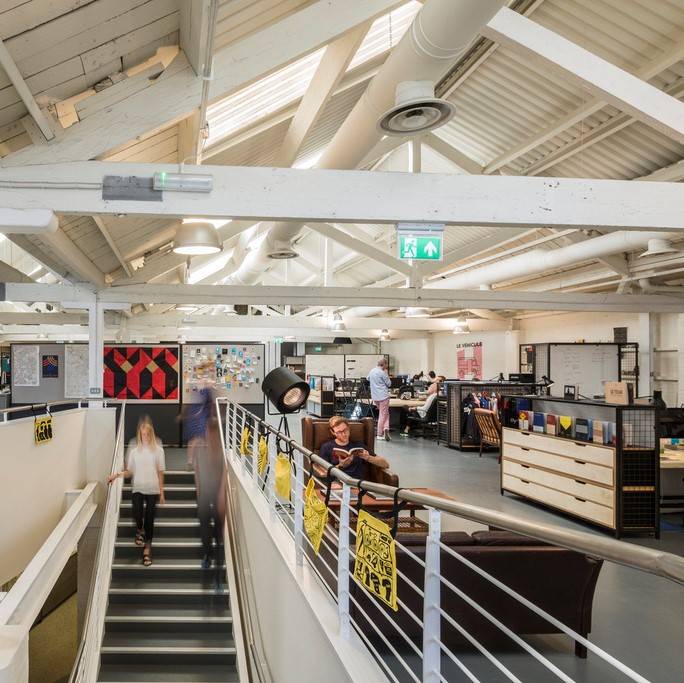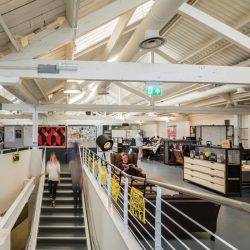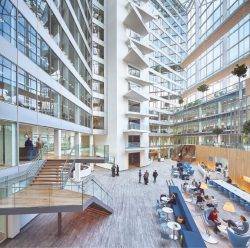February 22, 2018
The UK needs a new approach to low pay, equality and flexible working
 A new research paper from the Institute for Employment Studies (IES) claims to identify areas where employers and policymakers should act to reinvigorate their pay and rewards practices to improve employee engagement and productivity. According to the IES, with the likely intensification of current recruitment shortages, skills gaps and the fall in living standards as the UK leaves the European Union, the paper argues that both employers and policymakers should act on three key areas – low pay, gender pay and total rewards – to help halt the relative decline of the UK’s already below-par productivity performance.
A new research paper from the Institute for Employment Studies (IES) claims to identify areas where employers and policymakers should act to reinvigorate their pay and rewards practices to improve employee engagement and productivity. According to the IES, with the likely intensification of current recruitment shortages, skills gaps and the fall in living standards as the UK leaves the European Union, the paper argues that both employers and policymakers should act on three key areas – low pay, gender pay and total rewards – to help halt the relative decline of the UK’s already below-par productivity performance.








 The construction industry needs new talent and skills to help in the adoption of new technologies to meet the challenges of digital transformation. It must also become more diverse, including increasing the percentage of women in the industry. These are the recommendations of a new report from the World Economic Forum, developed in collaboration with The Boston Consulting Group (BCG), Shaping the Future of Construction: An Action Plan to solve the Industry’s Talent Gap. The report argues that the Infrastructure and Urban Development (IU) industry has failed to innovate as quickly as other sectors, resulting in stagnating productivity and negative effects on the economy, society and the environment. An ongoing industry-wide shortage of qualified workers is among the key reasons for this issue. It has undermined project management and execution, adversely affecting cost, timelines and quality. It also has impeded the adoption of new digital technologies, such as building information modelling (BIM), automated equipment and cloud-based collaboration tools, which could improve productivity. The report provides twelve key actions which needs to be implemented to close the structural talent gap of the construction industry.
The construction industry needs new talent and skills to help in the adoption of new technologies to meet the challenges of digital transformation. It must also become more diverse, including increasing the percentage of women in the industry. These are the recommendations of a new report from the World Economic Forum, developed in collaboration with The Boston Consulting Group (BCG), Shaping the Future of Construction: An Action Plan to solve the Industry’s Talent Gap. The report argues that the Infrastructure and Urban Development (IU) industry has failed to innovate as quickly as other sectors, resulting in stagnating productivity and negative effects on the economy, society and the environment. An ongoing industry-wide shortage of qualified workers is among the key reasons for this issue. It has undermined project management and execution, adversely affecting cost, timelines and quality. It also has impeded the adoption of new digital technologies, such as building information modelling (BIM), automated equipment and cloud-based collaboration tools, which could improve productivity. The report provides twelve key actions which needs to be implemented to close the structural talent gap of the construction industry.


 Concern amongst small and medium sized enterprises (SMEs) regarding the current economic climate fuelled by worries over a Brexit-related skills shortages, is at a three-year high, according to the latest Zurich SME Risk Index. It now sits at 56.38, indicating almost a 2 percent rise in perceived risk since Q1 2016 (55.43), and more than 3 percent higher than in October 2016 (54.55). SMEs attitudes towards economic growth, presently sits at a four-year low – with just two in five (40 percent) businesses confident that the UK economic situation will improve over the next 12 months. Similarly, the results regarding SMEs attitudes towards the international trade environment, reveals concern regarding overseas competition and currency rate fluctuations being at its highest in four years at 45.49. Equally, workforce challenges, namely the availability of skills and talent, is also an increasing concern for smaller businesses. Two in five (40 percent) SMEs now see workforce challenges as a major concern for their business; a rise of 8 per cent since October 2016, indicating that political issues are a major influence on the current attitudes of business owners in the UK.
Concern amongst small and medium sized enterprises (SMEs) regarding the current economic climate fuelled by worries over a Brexit-related skills shortages, is at a three-year high, according to the latest Zurich SME Risk Index. It now sits at 56.38, indicating almost a 2 percent rise in perceived risk since Q1 2016 (55.43), and more than 3 percent higher than in October 2016 (54.55). SMEs attitudes towards economic growth, presently sits at a four-year low – with just two in five (40 percent) businesses confident that the UK economic situation will improve over the next 12 months. Similarly, the results regarding SMEs attitudes towards the international trade environment, reveals concern regarding overseas competition and currency rate fluctuations being at its highest in four years at 45.49. Equally, workforce challenges, namely the availability of skills and talent, is also an increasing concern for smaller businesses. Two in five (40 percent) SMEs now see workforce challenges as a major concern for their business; a rise of 8 per cent since October 2016, indicating that political issues are a major influence on the current attitudes of business owners in the UK.
 The creative team behind the development of the world’s most sustainable building – The Edge in Amsterdam – has announced the launch of a real estate technology company. EDGE Technologies, launched by OVG Real Estate CEO Coen van Oostrom will focus on creating a new generation of buildings which feature the latest innovations in sustainability and wellbeing. Whereas parent company OVG is focussed exclusively on the development of its existing portfolio, EDGE Technologies will focus on both the development and the long-term operations of this new generation of buildings, aiming for a cohesive experience across cities. Each EDGE building will be built and operated on the same technology platform and offer consistent user-centred design, created to serve the needs of today’s fast-changing and demanding workforce. To help achieve this the new company is launching a product that will capture and aggregate data across its properties in order to optimize, measure and inform both the user experience and the building’s environmental performance.
The creative team behind the development of the world’s most sustainable building – The Edge in Amsterdam – has announced the launch of a real estate technology company. EDGE Technologies, launched by OVG Real Estate CEO Coen van Oostrom will focus on creating a new generation of buildings which feature the latest innovations in sustainability and wellbeing. Whereas parent company OVG is focussed exclusively on the development of its existing portfolio, EDGE Technologies will focus on both the development and the long-term operations of this new generation of buildings, aiming for a cohesive experience across cities. Each EDGE building will be built and operated on the same technology platform and offer consistent user-centred design, created to serve the needs of today’s fast-changing and demanding workforce. To help achieve this the new company is launching a product that will capture and aggregate data across its properties in order to optimize, measure and inform both the user experience and the building’s environmental performance. 






 The UK has been ranked as the eighth best country in the world for the ability to attract, retain, train and educate skilled workers, but while its ability to leverage diversity for talent competitiveness is boosted by its global knowledge skills – the UK is undermined by its weaker performance on tolerance and gender equality. According to the Global Talent Competitiveness Index GTCI) produced by the Adecco Group, with international business school INSEAD and Tata Communications, the UK has a particularly strong pool of global knowledge skills, a variable for which it is ranked third in the index boosted further by its strong regulatory, market and business landscape. But this is undermined by its internal openness, where it still lags behind, especially when it comes to gender equality. The report also suggests that although Article 50 was triggered in 2017, the ongoing negotiations and continuing lack of clarity over the UK’s position once it leaves the European Union in 2019, means the impact of Brexit is not yet clear.
The UK has been ranked as the eighth best country in the world for the ability to attract, retain, train and educate skilled workers, but while its ability to leverage diversity for talent competitiveness is boosted by its global knowledge skills – the UK is undermined by its weaker performance on tolerance and gender equality. According to the Global Talent Competitiveness Index GTCI) produced by the Adecco Group, with international business school INSEAD and Tata Communications, the UK has a particularly strong pool of global knowledge skills, a variable for which it is ranked third in the index boosted further by its strong regulatory, market and business landscape. But this is undermined by its internal openness, where it still lags behind, especially when it comes to gender equality. The report also suggests that although Article 50 was triggered in 2017, the ongoing negotiations and continuing lack of clarity over the UK’s position once it leaves the European Union in 2019, means the impact of Brexit is not yet clear.















February 16, 2018
Pearls of elemental wisdom about workplace design and management
by Mark Eltringham • Comment, Facilities management, Workplace design
More →